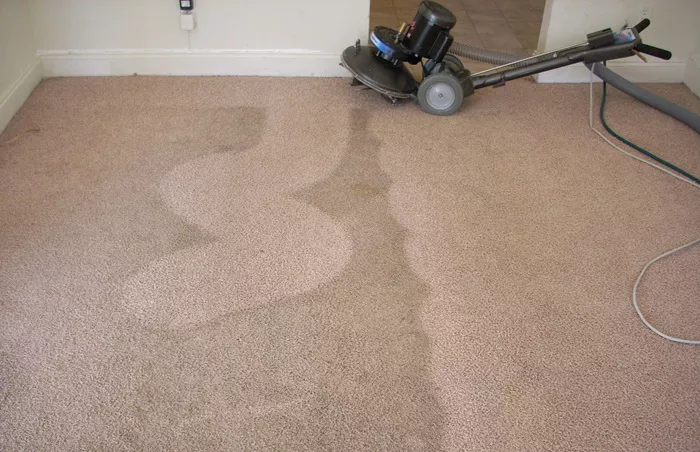For some people, cleaning can be a satisfying and productive way to end the day. However, not all chores are meant for the evening.
Tasks like wiping counters or folding laundry can be done quietly and efficiently, while others can be risky, disrupt sleep, or bother nearby neighbors.
What time of day you choose to clean can affect how well some appliances clean, their safety, and even their longevity.
Cleaning after dark can also lead to minor, albeit annoying, problems, like water spots on windows and stains on surfaces. Worse, chemical fumes can pose health risks and linger longer if doors are locked at night.
To ensure the health of your home and its occupants, here are some cleaning tasks you should avoid doing at night, and why it’s best to wait until the morning.
8 Cleaning Tasks You Should Never Do at Night
1. Cleaning with chemicals
Many cleaning products contain strong chemicals that require good ventilation. Ingredients like bleach and ammonia release gases that can cause headaches, dizziness, or respiratory irritation. Unless you leave your windows open all night, it can be difficult to ventilate a clean room.
If you do some light cleaning at night, try to use natural cleaning products to reduce health risks. If you need to use strong cleaning agents, wait until daytime when you can open the doors and windows to allow air to circulate.
2. Wash Windows
Windows are best cleaned in good light for streak-free results, so cleaning at night isn’t ideal.
Artificial lighting can create shadows that make stains harder to see, which means you may wake up to find that your cleaning results are less than ideal. Additionally, damp windows can accumulate condensation during the night, which can ruin your hard work.
3. Vacuum
Even if you have the latest vacuum cleaner on the market or use a robot vacuum, the noise from running it at night can disturb your family.
If you live in an apartment building or other type of community where homes are close to each other (such as a duplex or townhouse), you may also disturb your neighbors.
Many local noise ordinances restrict loud activities during designated “quiet hours,” so vacuuming at night can actually cause you trouble.
If you need to clean up a mess quickly, try a broom and dustpan or a handheld vacuum for a quieter solution.
4. Mopping
Mopping after get off work can present unexpected hazards. Wet spots can easily create slip hazards, especially if someone is up in the middle of the night and doesn’t notice the floor has just been mopped.
It’s also easy for dust, dirt, and stains to go unnoticed, leading to an incomplete clean. If you need to mop up a late-night spill, consider using a dry mop or cleaning only the affected area instead of trying to clean the entire floor.
5. Tidy or Rearrange
If you loved tidying your bedroom in the middle of the night as a kid, you may occasionally feel the urge as an adult. But that doesn’t mean you should! Tidying or moving furniture late at night can be dangerous, especially in dimly lit areas.
You could trip over something, stub your toe, or drop an item, which could result in injury or wake someone else. Consider doing these activities when the sun is shining.
6. Deep Clean Your Kitchen
Light kitchen cleaning late at night, like wiping up spilled dinner scraps, is usually no big deal. But scrubbing the oven, dumping expired food out of the fridge, or even running the dishwasher can be disruptive.
Dishwashers, in particular, tend to be noisy enough to disturb light sleepers and, in rare cases, start a fire if you’re asleep, which takes longer to react to.
In addition, deep cleaning tasks like scrubbing or organizing cabinets can take longer than expected, leaving you exhausted by bedtime.
7. Do the Laundry
Washers and dryers can be very noisy, especially in a small home where sound can easily travel, and the noise level depends on where the appliance is placed.
The sound of running water, the tumbling of hard objects (like buttons on jeans), and the signal of the machine can be jarring to someone trying to sleep.
As with dishwashers, dryers are also a fire hazard if lint buildup causes them to overheat, so it’s best to stay awake and alert when using these appliances.
8. Steam Cleaning
Steam cleaners are all the rage right now, but it’s best to wait until daytime to use them. Spilled liquids can easily cause burns, and the dim light at night, coupled with fatigue, makes accidents more likely.
In addition, steam-cleaned carpets take longer to dry in the cool night air, making them more susceptible to mold growth.
Related topics:
- Handheld Steam Cleaner “Revolutionizes Deep Cleaning” — Now Under $50
- Steam Cleaner Does the Scrubbing for You
- Spinning Brush Under $20 — ‘Game Changer’ for Cleaning

